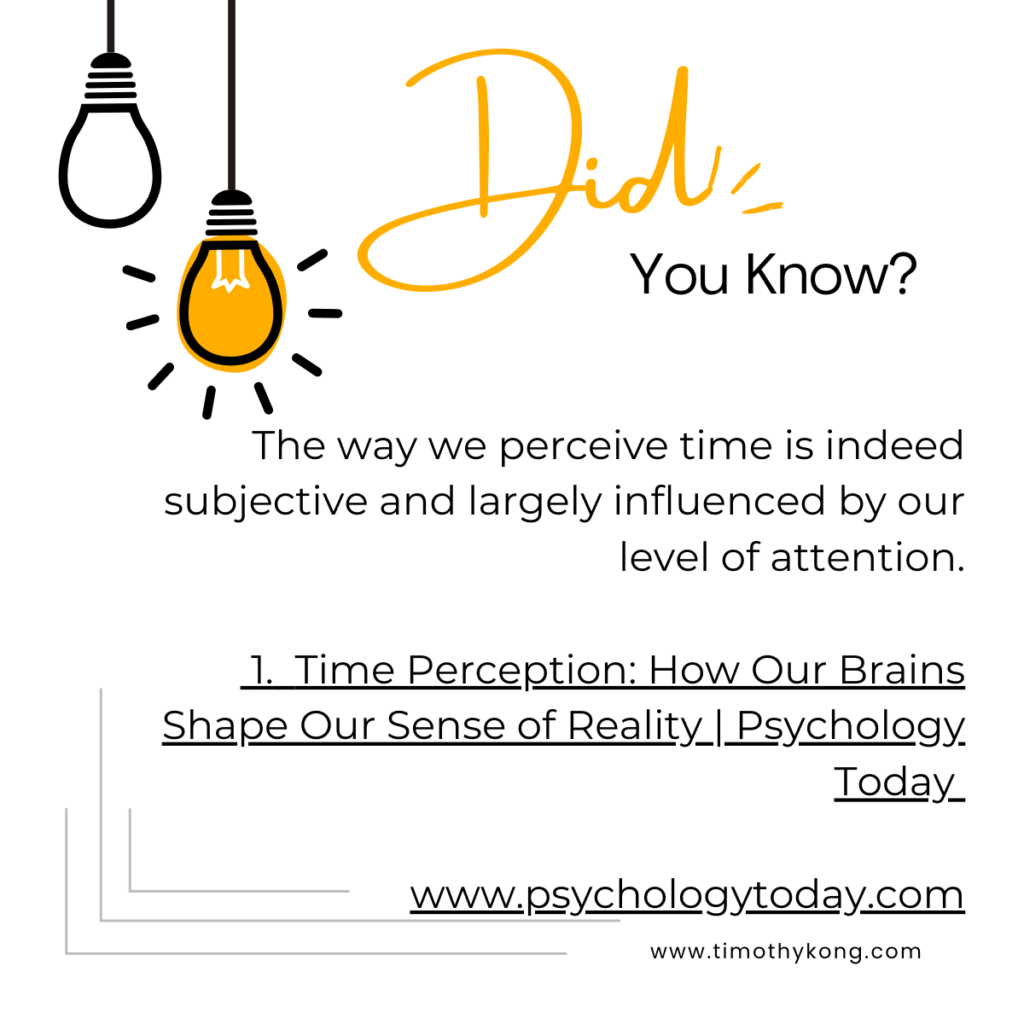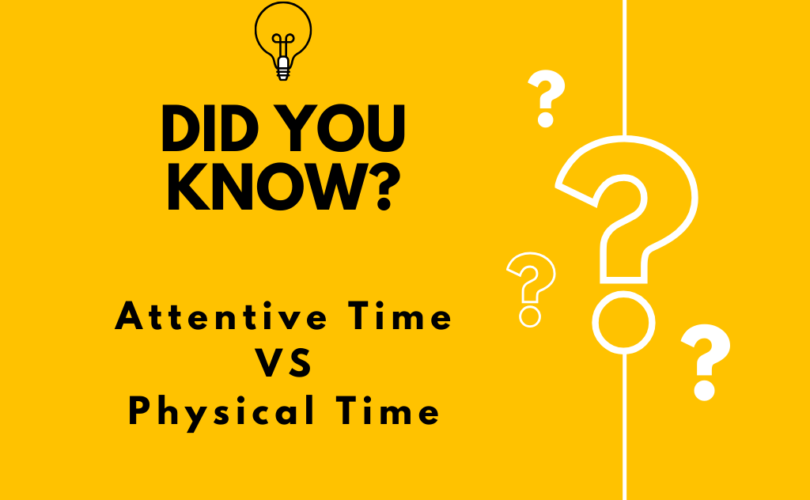
Breaking Down the Concept
- Physical Time: This is the objective measurement of time, as marked by clocks and calendars. It’s linear and constant.
- Attentive Time: This is our subjective experience of time, influenced by our mental state, engagement, and the depth of our focus. It can feel expanded or contracted, depending on various factors.
Factors Influencing Attentive Time
- Engagement: Activities that fully capture our attention, like a thrilling novel or a challenging puzzle, often make time seem to fly.
- Boredom: Conversely, monotonous or uninteresting tasks can drag on, making time feel like it’s crawling.
- Emotional State: Strong emotions, whether positive or negative, can distort our perception of time. 1. The effect of emotion intensity on time perception: a study with transcranial random noise stimulation | Experimental Brain Research – SpringerLink link.springer.com
- Mindfulness: Being present in the moment can enhance our experience of time, making it feel fuller and more meaningful. 1. How Present-Moment Awareness Can Make Life More Meaningful – Mindful.org www.mindful.org
- Age: Our perception of time tends to accelerate as we get older. 1. Time Flies By Faster As We Get Older. Here’s Why. – College of LSA – University of Michigan lsa.umich.edu
The Implications
Understanding the difference between attentive and physical time has profound implications for various aspects of life:
- Productivity: Focusing intently on a task can increase efficiency and output.
- Relationships: Quality time is more about attention than duration. 1. From Time to Quality Time: Making Every Moment Count – USU Extension – Utah State University extension.usu.edu
- Personal Growth: Mindfulness practices can help us appreciate the present moment more fully. 1. Being Present: Benefits Of Mindfulness and How To Get Started – Clarity Clinic www.claritychi.com
- Time Management: Recognizing how we perceive time can help us prioritize tasks and allocate time effectively.







